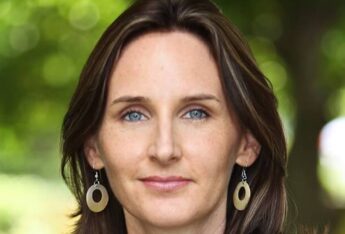
Artikel
17
January
Bridging the global education funding gap with outcomes funds
From our Impact Investor Guide 2024: Tackling the global education crisis poses a huge challenge, but outcomes-based partnerships may provide a valuable part of the solution.

Just a few months ago, the world’s largest education outcomes fund kicked off. Over the next four years the Ghana Education Outcomes Project aims to get 70,000 out-of-school children back into the classroom and improve learning outcomes for over 100,000 children across 600 primary schools.
The innovative program is structured as an outcomes-based financing mechanism, meaning that the implementers only get paid if they achieve independently verified improvements in student learning, based on pre-agreed targets. While a small number of such programs have been test-ed in education, this is the biggest to date.
The $30m (€28m) that are needed to finance the program, if successful, have been pledged by the government of Ghana ($4.5m) and the UK’s Foreign, Commonwealth & Development Office ($25.5m).
The government of Ghana contracted three international NGOs, with the support of local organisations, as providers to do the work. They are financially backed by Bridges Fund Management and UBS Optimus Foundation, via the SDG Outcomes fund, and the Jacobs Foundation.
If the implementers hit the pre-agreed results targets, the investors will re-coup their initial investment plus a bonus of up to 10%.
A shift in mindset
Besides being the largest education outcomes fund so far, the Ghana program has another unique feature: it’s a cooperation between three of the most important players in the field of outcomes funding in developing countries. Next to the two funders – UK Bridges Fund Management and the Optimus Foundation of the Swiss bank UBS – it is the Education Outcomes Fund (EOF) that designed the Ghana Education Outcomes Project.
The interest in this new, innovative approach is growing. Outcomes funds can serve as the financial infrastructure for impact bonds to thrive and deliver social impact. Bundling a number of impact bonds seems to accommodate the existing objections to the bonds as being too expensive, too complex and too small-scale, in most cases a few million euros at most.
Is the Ghana program new proof that outcomes funds can set a template for collaborative investment to tackle the SDGs, as Legatum’s CEO Mark Stoleson recently argued in an article in Impact Investor?
When asked, Emily Gustafsson-Wright, senior fellow at the Brookings Institution and one of the most influential analysts in this field, is cautiously positive.

“Outcomes funds are a way to scale outcomes-based financing or impact bonds. By pooling funds, they make it possible to serve larger populations.” She warns that it’s certainly not the panacea across all contexts, “but adopting a greater focus on outcomes could improve the likelihood of ad-dressing the SDGs”.
“Some outcomes funds are used to test out various service delivery models to identify which are most effective or which most cost-effective,” Gustafsson-Wright explains. “The model can also bring helpful systems strengthening aspects including collaboration across different types of stakeholders. We have anecdotal evidence that demonstrates this is the case.”
Scaling up
According to Jared Lee, one of the founders of the EOF who led the design of their first programs, an important secondary goal of the Ghana program, as well as of a similar $18m education outcomes program in Sierra Leone, is “to demonstrate that this model can be used at scale, and to set a precedent for it to be replicated efficiently and effectively in many other countries”.
This is badly needed, given the short-comings of many education systems. According to the World Bank, 70% of the world’s children are now in ‘learning poverty’, up from 57% before the pandemic.
Lee adds: “In addition to the learning crisis, we also see a lot of evidence that far too much spending in education doesn’t improve learning. We need to look beyond traditional approaches that haven’t been working. Outcomes funds can be a powerful tool in the toolkit to measurably improve the impact of our investments, as well as strengthen education systems to make them more oriented around results for children.”
The role of governments as the main provider of services such as education and healthcare is critical. “If governments in low- and middle-income countries don’t engage in outcomes funds,” says Gustafsson-Wright, “the model is not sustainable.” An outcomes-based funding readiness is needed to ensure governments can adapt and focus on outcomes. “It is vital to have champions within governments driving the needed shift in mindset.”
A slow journey
Lee is more worried about another bottleneck: “During my time at EOF, it’s been a pleasant surprise how consistently the governments we speak to see a lot of value in this approach. For us, it’s been much more challenging to find the donors who are willing to pay for the outcomes, alongside government. Some of the biggest donors are moving into this direction, but the journey is slow. They are typically relatively conservative institutions, especially the major bilateral donors. And they usually want to test the water first, before coming in at scale.”
The main anchor funder for both of EOF’s programs in Africa is the British government through its aid agency FCDO (formerly DFID). “The reason why they were able to move relatively quickly, and at scale, is that there is extensive domestic experience in the UK with outcomes contracts, that they were then able to transfer internationally.”
The UK has traditionally been the biggest market for outcomes partnerships, but the approach is increasingly being exported. Also Bridges Fund Management, a pioneer in outcomes partner-ships in the UK, is now expanding the model into low- and middle-income countries. It supports both African education programs of the EOF. Bridges Outcomes Partnerships is managing the $100m SDG Outcomes Fund, which was developed by UBS Optimus Foundation. A main goal of this fund is to drive private investment in projects that would have been beyond the compass of a single organisation.
For the time being, outcomes funds however suffer from the same problem as development impact bonds: they require a lengthy process of designing and preparation. It took some five years to get the Ghana Education Outcomes project off the ground. “Actually, a huge part of this period was used to build the ecosystem and the institutional capacity to do these types of programs,” Lee says.
In the coming years, his organisation plans to invest in stable partnerships with both types of funders, investors and governments, as well as in standardised design and contract templates. “By the time we are launching our 4th or 5th program in basic education, it shouldn’t take more than a year to replicate that same process.”
Early childhood education
Besides efforts to replicate the basic education programs developed for Sierra Leone and Ghana to other African countries, the EOF is also expanding its focus to early childhood education, through a major strategic partnership with the LEGO Foundation. This foundation receives roughly a quarter of the profits of the LEGO company each year, making it the biggest private funder of education globally. EOF’s early childhood program will initially be developed in South Africa, Rwanda and Sierra Leone, and is scheduled to launch in 2024.
Lee explains: “We have fully staffed design teams, and a significant amount of funding committed from the respective governments as well as our partnership with the LEGO Foundation, and we are actively looking to bring in other funders. Once the programs are designed together with governments, we then go out to the market to invite bids from providers and investors to deliver the outcomes.”
“It’s very hard to find investible opportunities that can support the most marginalised low-income communities in sub-Saharan Africa, because there’s usually no revenue model that can provide the returns impact investors are looking for. Outcomes funds provide a new opportunity for investors,” Lee says. “They nicely bring together the complementary resources and capabilities of the donor community, governments, the implementing partners and impact investors – where each contributes what only they can uniquely bring to the table. Although outcomes funds are not a silver bullet and come with their own challenges, I’m convinced that these partnerships, when well designed, can be extremely powerful.”
What's your reaction ?
Follow us on Social Media
Some Categories
Recent posts

February 04, 2026
Inkomstenbelasting 2026: dit verandert er voor ondernemers

February 03, 2026
Inkomstenbelasting 2026: dit verandert er voor ondernemers

January 30, 2026
Dit wordt het minimumloon vanaf 1 januari 2026 per uur en per maand

January 25, 2026
Verplichte AOV is niet of nauwelijks uitvoerbaar voor zzp’ers volgens Raad van State

January 21, 2026
Verplichte AOV is niet of nauwelijks uitvoerbaar voor zzp’ers volgens Raad van State

 Inloggen
Inloggen
 Registreren
Registreren






Comments (0)
No reviews found
Add Comment